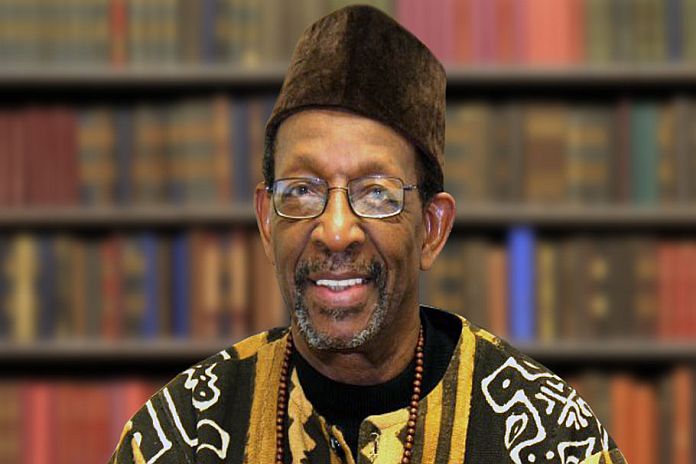By Lincoln DePradine
The lack of a comprehensive study of Grenada’s history in schools has been lamented, as well as the absence of schools named after former local “stalwart’’ educators.
“For some strange and unknown reason, we’ve hidden our history under a bushel,’’ said Dr Nicole Phillip-Dowe, head of the University of the West Indies (UWI) Open Campus in Grenada.
“The children are willing to learn because they want to know about their story; they are eager to know about their story,’’ Phillip-Dowe said at an online lecture titled, “Malcolm, Maurice and the Movement for Reparations in Grenada’’.
The event, organized by the Grenada National Reparations Commission (GNRC), in collaboration with UWI’s Open Campus, was dedicated to the memory of Alimenta Bishop, mother of late Grenada prime minister, Maurice Bishop; and Louise Norton Langdon-Little, Grenadian mother of famed US human rights activist, Malcolm X.
The virtual gathering, the first public lecture of the GNRC, was held May 19 – the anniversary of Malcolm’s birthday. He would have been 96.
Bishop, who headed the 1979-83 People’s Revolutionary Government of Grenada, was assassinated on October 19, 1983. He would have been 77 on May 29.
“There is no doubt in my mind, that the life and legacy of these two revolutionary sons of Grenadian soil, have laid the foundation and paved the way for our current movement for reparations in Grenada and in the Caribbean region,’’ ambassador Arley Gill said in delivering opening remarks at the lecture.
“Both Brother Maurice and Brother Malcolm understood the global struggle for the liberation of oppressed Black people and sacrificed their lives for freedom and justice,’’ added Gill, who is chairman of the GNRC.
Dr Ron Daniels, a veteran African-American political activist who was the lecture’s keynote speaker, dismissed the suggestion by “retrograde forces’’, who want to “demean reparations’’ by claiming it’s about just trying to get money.
“Some individuals may be “deserving of a direct payment’’, but reparations are not about payment, Daniels said. “It is about healing our communities; it is about repairing our communities,’’ he explained.
“There is no amount of money that could pay for the enormous depth of wealth of Black people.’’
Daniels, convener of the National African American Reparations Commission, recalled visiting Grenada on the first anniversary of the Revolution in 1980, attending a rally of thousands including then Jamaica prime minister Michael Manley and Nicaraguan president Daniel Ortega.
“That was an inspiring moment,’’ said Daniels, who now serves as president of the New York-based Institute of the Black World Twenty-First Century.
Grenada, which was “unique’’, was a “base for Pan-Africanists all over the world’’ and the “source of a global movement’’ during the Revolution, Daniels said.
The demise of the Revolution in 1983, he said, “left a hole in the heart and soul and mind of Grenadians and revolutionaries all over the world’’.
Daniels said the formation of the GNRC is “special and significant’’, with Grenadians having “a sacred duty’’ to participate in the regional and global efforts at seeking reparations for the enslavement of African people.
“It’s time for you to take your rightful place’’ in the reparations’ movement, said Daniels. “You know that Maurice Bishop and Malcolm X are in the ancestral land cheering us on.’’
Attendees submitted a series of questions during the lecture that was moderated by St George’s University professor Dr Damian Greaves, with the vote of thanks given by journalist Earl Bousquet, chairman of the Saint Lucia National Reparations Committee.
Audience questions covered not just issues around reparations, but also on the Grenada Revolution, Grenada and Caribbean history, and students’ knowledge of history.
Phillip-Dowe, GNRC Research Coordinator and the commission’s deputy chairperson, encouraged the teaching of Grenada history by school educators.
“I’m a teacher by training. I remember, as a young teacher, no one had to tell me that I had to teach Grenada’s history. That came as something natural. And, even if you have a syllabus and you have to follow the syllabus, there are ways and means of putting your country’s history into the existing syllabus that you have,’’ Phillip-Dowe said.
“It’s now about hiding. it’s about sharing with the next generation, so that they understand; so that when we talk about things like reparations, they can understand where we are coming from; and, the only how they can do that is if they understand their history.’’
Phillip-Dowe admitted that recent Grenada history is “sometimes very difficult to speak about because persons are still alive, and because there are so many wounds from the Grenada Revolution, especially the way that the Grenada Revolution ended’’.
However, she argued that it remains the responsibility of adults, including parents and teachers, “to let our young people know the truth – the good, the bad and the ugly. They have to know it. It is their story. It is about their country. So, it is our responsibility to actually let them know’’.
Ambassador Gill, a former history teacher who once served as culture minister of Grenada, said it “saddens’’ him that the country doesn’t have a museum of the history of the Revolution.
“There must be conscious political leadership with regards to ensuring that our history is taught to younger generations,’’ he said.
Gill noted that while there are streets named after former colonizers and slave owners, nothing exists as a tribute to Grenadians – including retired educators – who made “tremendous sacrifices’’ for Grenada, Carriacou and Petite Martinique.
“There is nothing to remind us of those stalwarts who have served this country so well,’’ he said. “We must make the conscious political decision to teach the history of our people to our students.’’
Gill publicly announced, for the first time, other members of the GNRC. They include US-based Grenadian Dr Kellon Bubb, who is Diaspora Coordinator. Other members are Peter Antoine, John Angus Martin, Sharon Pascal, Rochel Charles and Lincoln DePradine.
The GNRC has embarked on a “very important’’ mission, said Gill, and “our work for justice will not be in vain’’.






